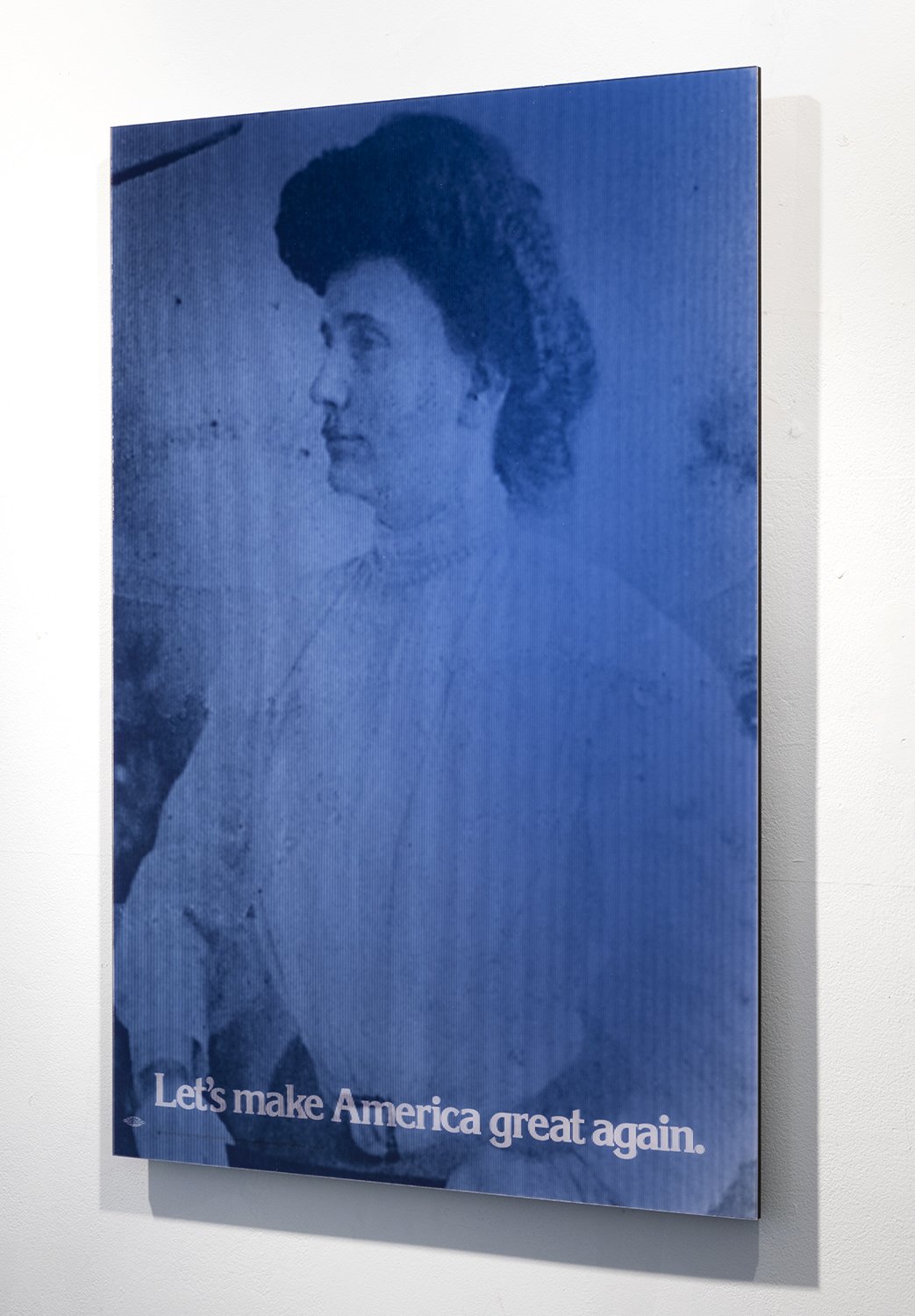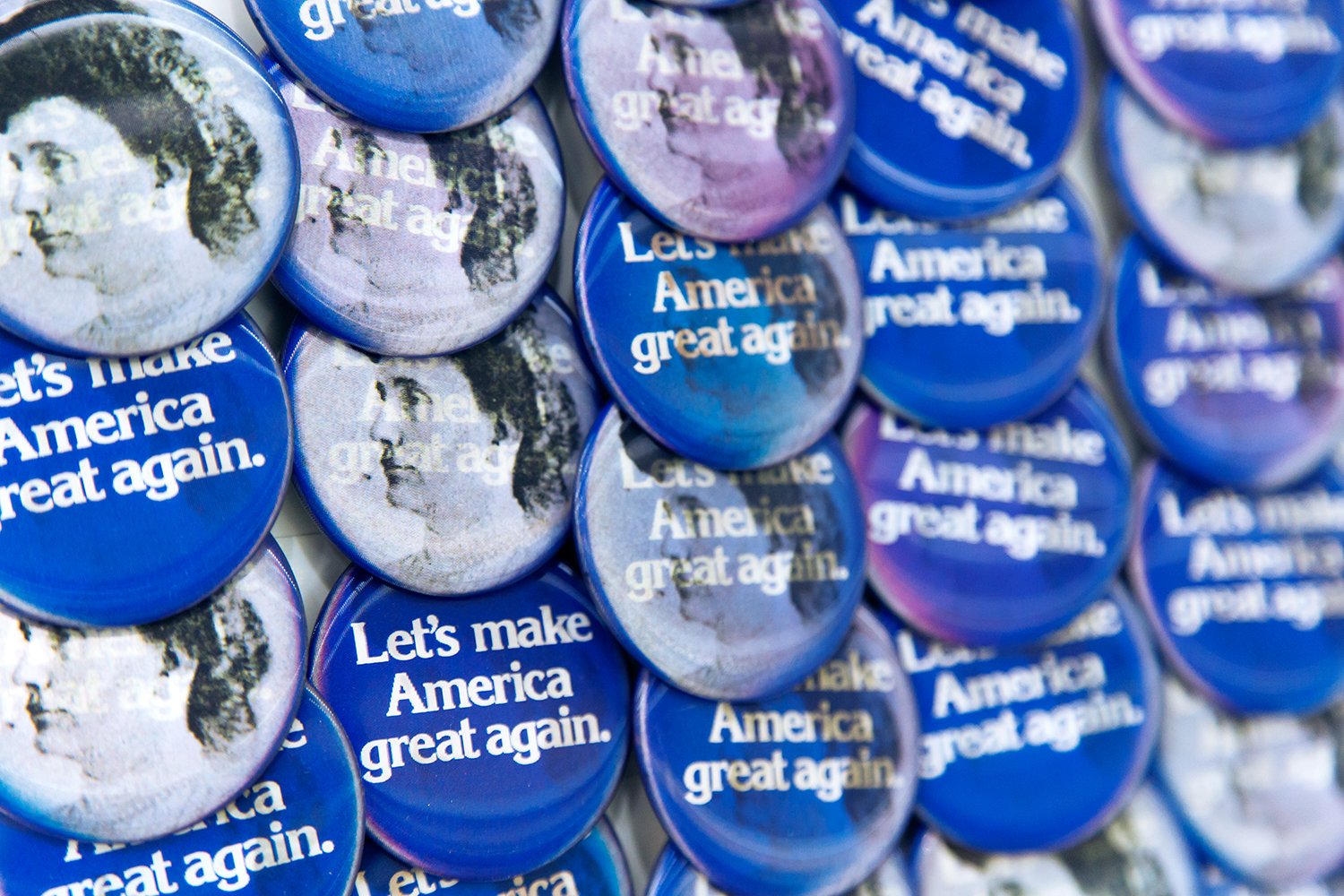Rec-elections (Let's make America great again., Isabel González)
2016
lenticular prints
Rec-elections (Let's make America great again., Isabel González) critically reimagines Ronald Reagan's 1980 campaign poster and lenticular campaign button which featured a black & white portrait of Reagan on a blue background, along with his campaign slogan "Let's make America great again.". Evocatively, Reagan's campaign slogan was famously co-opted, slightly altered and trademarked by Donald Trump into "Make America Great Again" for his 2016 presidential campaign slogan.
In these lenticular prints, Reagan's image has been erased and replaced with an image of Isabel González, a Puerto Rican activist who in 1902 traveled from Puerto Rico to New York City by boat and upon her arrival at Ellis Island was detained and deemed an "alien immigrant". González challenged her immigration status against the government of the United States in a Supreme Court case which became known as González v. Williams. In 1904 the court determined that under immigration law González was not an alien and could not be denied entry to the U.S.. Her fight would eventually pave the way for all Puerto Ricans to receive U. S. citizenship in 1917 under the Jones-Shafroth Act.
Lenticular prints have been utilized throughout political campaigns since the 1940's and have the ability to display multiple images as they are viewed from different angles. As a viewer changes their viewpoint, a portrait of González appears from behind the campaign slogan revealing the American histories that Donald Trump's slogan "Make America Great Again" was designed to conceal.
Rec-elections is an ongoing project (2012-) which unpacks and critiques the weaponization of nostalgia and slogans used within historical American presidential campaign posters. The etymology of the word slogan derives from Gaelic origins and effectively means “battle cry”. Sourced from online auction sites such as eBay, I alter and reimagine, these presidential campaign posters, banners, and flags and reinsert them back into the public realm where they are utilized in, site-specific interventions and performances, prints, flags and installations.
Within this framework, works from the Rec-elections project resurrect the language of bygone slogans to reveal the fallacy of a romanticized American myth of equality, justice, and prosperity for all.


